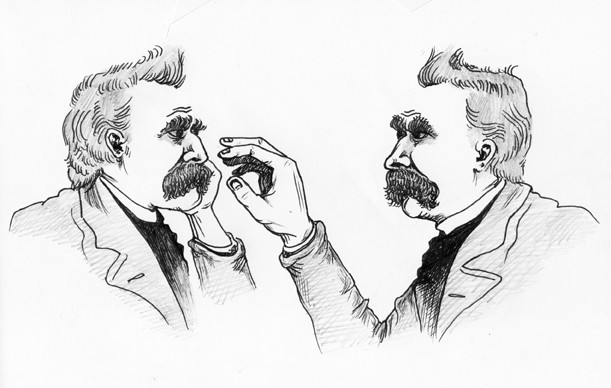The state of philosophy at the U of W
We should all be concerned
It is inevitable that, at some point, every philosophy student must answer this question: “Why study philosophy?” This is usually followed by a second common question: “What kind of job does that degree get you?”
Well, in response to the first question, it seems to me that everyone is a philosopher.
Everyone has at one time asked questions like: “Who am I?” “Is there a God?” “What is fair or just?” “Am I a good person?” These are all questions that philosophy takes very seriously. They are questions that some of greatest thinkers of all time have tried to answer.
I cannot understand why studying philosophy seems so mysterious when the questions philosophy wrestles with are the same questions everyone has asked themselves.
There is a perception that philosophers just sit within their ivory towers talking about things no one really cares about. To some extent I think this may be a fair criticism.
But I do not think that philosophy is unique in this regard. The academy in general can be quite a closed and guarded place.
However, philosophy is hampered by the public perception that a philosophy degree will not get you a job, that it teaches you no practical skills. This perception is partly the fault of philosophers who just engage in the types of ivory-tower disputes that give rise to the public perception.
It is up to philosophers to show that the things which philosophy deals with are practical skills. Critical thinking, being able to produce and analyze reasonable arguments, critical reading and an understanding of the history of ideas are all skills which aid people in understanding the world around them.
The skills that philosophy teaches are not only useful to everyday life, but of benefit in law, mitigation, crisis resolution, journalism, politics, the commercial sector and countless other professions. Philosophy students – and liberal arts majors in general – need an education in marketing themselves. The idea that a lack of career options somehow cheapens the liberal arts is one that we must do away with.
Philosophy is important, not just within a university course, but for everyone. It is an integral part in most areas of study. An understanding of ethics, justice and other philosophical categories are invaluable assets for any student to have.
That being said, our philosophy department at the University of Winnipeg is in danger.
The department will only have four tenured faculty members next year, one of whom will be away on sabbatical. With so few professors, the department will not be able to offer the courses needed for students to receive a full education in philosophy. A liberal arts university needs a strong humanities component, and philosophy is an integral part of the humanities.
U of W’s dean of arts, David Fitzpatrick, made it clear to me that he feels the same. According to him, there is a plan to rebuild the philosophy department so it can once again be vibrant and strong. Hopefully, this plan includes retaining the department’s two sessional professors, David Borman and Michael Hickson, who at this time are scheduled to be let go. To create a strong and vibrant department in any discipline, young, capable and enthusiastic professors are a necessity.
Philosophy is a diverse field. In order for students to receive a well-rounded education, the department needs more faculty members, not less. At the very least, the university should retain the two sessional professors which it plans not to rehire next year.
Marc Kruse is co-ordinator for the Philosophy Students’ Association at the University of Winnipeg.
Published in Volume 64, Number 14 of The Uniter (December 3, 2009)







